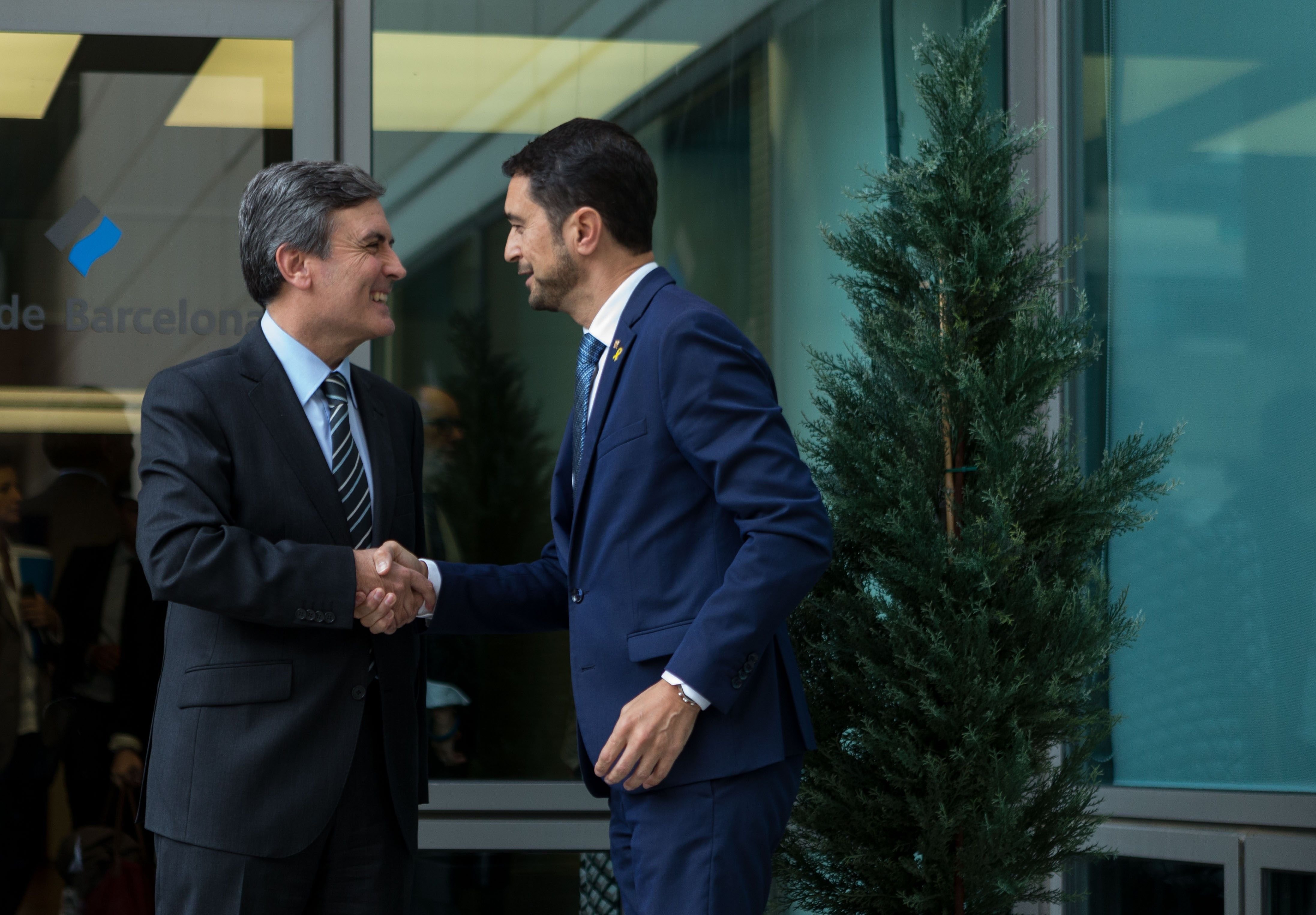The first meeting in eleven years of the bilateral infrastructure commission between the Catalan and Spanish governments was held today. Discussion centred on outstanding Spanish commitments, but "no agreement was reached" due to "differences" between the two sides over how the first 200 million euros (£180 million; $230 million), promised for 2019, should be paid to Catalonia.
On 25th September this year, Catalan vice-president Pere Aragonès announced that they had agreed to meet the third additional provision of the Catalan Statute of Autonomy on infrastructure, pending since the previous PSOE government of José Luis Rodríguez Zapatero in 2008. This will recover 759 million euros for Catalonia in the area of infrastructure over the next four years. Of this, 200 million was to come in the 2019 budget.
Catalan territory and sustainability minister, Damià Calvet, and Spanish secretary of state for infrastructure, transport and housing, Pedro Saura, met this afternoon in Barcelona's World Trade Center. Calvet explained that the differences arose over "the way in which these first 200 million have to be received". The Catalan government believes the money should be paid to them directly. According to the minister, however, "the state believes that the 200 million should be an ongoing investment in projects already underway in Catalonia".
For his part, Saura explained that they don't want to pay the money directly to the Catalan government (as was done in 2010 with the debt from 2007) because "the people want to see new infrastructure" and because "we want the administrations to agree in terms of infrastructure". According to Saura, "the Spanish government is fulfilling what the Statute of Autonomy and the bilateral economics and finances agreement say, since the methodology for the payment wasn't discussed in that [earlier] meeting, only that it would happen".
Saura says that "we believe that, with these 200 million, the priority is to invest in Rodalies [local trains], el Prat [airport], the R3 [train line], rail and road access to Barcelona and Tarragona ports, the connection of the AP-7 [highway] with the B-30, among others". Despite the dispute, the secretary of state says that "we're not throwing the towel in, because there's a debt that has to be paid and we want to do so".
In short, the Catalan government argues that the debts the state has to pay off "should be separated" from the "investments that have to be made"; the Spanish government sees it as a priority for this money to go towards projects already underway.
The only agreement
The two senior officials described the three-hour meeting as "positive", but that the only agreement they managed to reach was to "create a working group" to "interpret" the relevant prior minutes and legislation to "reach an agreement on the methodology for the payment".
The minister explained that "the working group will meet immediately". It will be balanced in composition, he said, and will "include people from the bilateral infrastructure commission".
In Calvet's words, "we're claiming that which is ours, an investment from the state which corresponds to Catalonia's GDP within the state's". He sees it as "very positive that the state should recognise the deficit in infrastructure funding in Catalonia".
And if no budget is passed?
Calvet also raised the question of "what will happen with these 200 million" if, in the end, the proposed 2019 budget isn't passed. No agreement was reached on this matter either, according to the minister. Asked about it in the press conference, the secretary general had no concrete answer to give.

